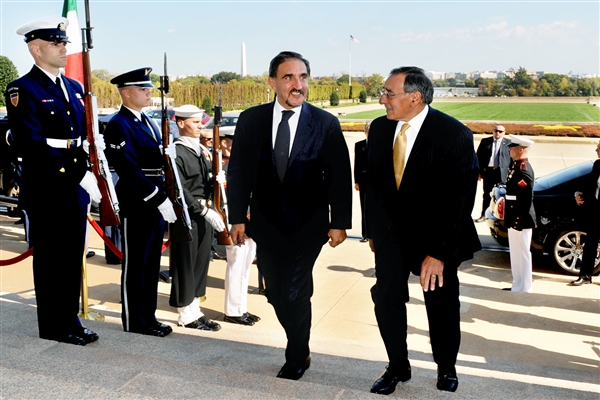3011th FOREIGN AFFAIRS Council meeting — Brussels, 10 May 2010
The Council adopted the following conclusions:
“1. The Council welcomes the Commission’s Communication on Humanitarian Food Assistance, which captures best practice and articulates the objectives, principles and standards by which the EU and its Member States can tackle hunger in humanitarian crises in the most effective, efficient and coordinated way.
2. The Council deems this as a necessary and timely policy framework, recalling the increasing humanitarian needs, and the growing number of undernourished people in the world. The Council furthermore recognises this Communication as an important contribution to the fulfilment of a commitment made in the Action Plan for the European Consensus on Humanitarian Aid, to “elaborate diversified approaches and interventions to food assistance” including livelihood support responses in different contexts on the basis of needs assessment and analysis.
3. The Council recognises the important inter-relation between this Communication and the separate Communication “An EU policy framework to assist developing countries address food security challenges”, and values the coherence of both documents, particularly in ensuring close coordination between humanitarian and development actors, while acknowledging their specific features of specialization, and linking relief with rehabilitation and development.
4. The Council endorses the overarching objective for EU humanitarian food assistance as saving and preserving life, protecting livelihoods, and increasing resilience, for populations facing on-going or firmly forecast food crises, or recovering from them.
5. The Council supports the shift away from the use of in-kind commodity food aid as the default response to humanitarian and emergency food needs. It therefore urges the EU and its Member States to support the capacity of the humanitarian system to conduct quality and transparent needs assessment and to deliver more varied and more appropriate forms of food assistance.
6. To this end, the Council agrees that EU humanitarian food assistance should aim to:
safeguard the availability of, access to, and consumption of adequate, safe and nutritious food for populations affected by ongoing, firmly forecast, or recent humanitarian crises so as to avoid high rates of mortality and acute malnutrition (in relation to absolute thresholds and where appropriate relative context-specific baselines), or other lifethreatening effects and consequences;
protect livelihoods threatened by recent, ongoing, or imminent crises and establish conditions to promote the restoration of self reliance; and,
strengthen the capacities of the international humanitarian aid system, to enhance efficiency and effectiveness in the delivery of food assistance.
7. The Council underlines that EU humanitarian food assistance should be consistent with the EU consensus on Humanitarian Aid and based on the following key principles:
respect and promote fundamental humanitarian principles of humanity, impartiality neutrality and independence;
be needs-based, evidence-based, results-focused, and preceded by and based on needs assessments, which should be common needs assessments whenever appropriate;
provide flexible resources to support the most effective and appropriate responses from a full range of potential tools, including cash and vouchers;
be prioritised according to (i) the severity of the crisis and the scale of the unmet needs (ii) the immediacy of the crisis, and (iii) the expected impact of the response;
do no harm and preserve human dignity;
involve beneficiaries, and incorporate gender and protection considerations, in humanitarian food-needs assessment, response design and implementation, as well as monitoring and evaluation;
incorporate nutritional perspectives into all food assistance needs assessments and responses, and pay particular attention to the specific nutritional needs of defined vulnerable groups affected by crisis ( children under-two, pregnant and lactating women and people living with HIV/AIDS among others), respecting, as far as possible, populations´ dietary preferences;
be closely coordinated with food security development activities, and pursue approaches for linking relief with rehabilitation and development, without replacing development instruments as the main tools to address chronic food insecurity, and facilitating smooth transition, hand over and exit strategies;
prioritise where appropriate the local and regional procurement of commodities when inkind food assistance is necessary in order to maximise acceptability of food products, protect or support local markets and local agricultural production, avoid market distortions and reduce transportation costs and delivery timeframes.
8. The Council endorses the entry criteria articulated in the Communication, such that a humanitarian food assistance response should be triggered when, due to inadequate food consumption, emergency rates (linked to absolute thresholds and where appropriate relative contextual indicators) of mortality or acute malnutrition have been reached or exceeded, or are firmly anticipated on the basis of humanitarian risk analysis. The Council also acknowledges that a food assistance response could also be triggered, if appropriate, by a serious deterioration of peoples´ livelihoods so as to avoid them resorting to detrimental coping strategies.
9. The Council similarly endorses the exit criteria articulated in the Communication, such that humanitarian food assistance interventions should be phased out when indicators of acute malnutrition, mortality and extreme coping (linked to inadequate food consumption or poor food utilisation), are stable below emergency levels, or are expected to stabilise below such levels independently of humanitarian support, and without beneficiaries resorting to detrimental coping strategies. Humanitarian food assistance may also be phased out if the above key principles cannot be respected or if the risk of doing harm outweighs the potential benefits.
10. The Council concurs that, ultimately, humanitarian food assistance should ensure beneficiaries’ timely access to safe and well balanced food, of sufficient quantity and quality to meet their dietary requirements. The choice of specific response options to meet this objective should be context specific and evidence based, and should be regularly reviewed.
11. The Council concurs that the EU and its Member States should facilitate complementary, multi-sectoral and integrated programming in collaboration with other humanitarian and development actors to ensure that humanitarian food and nutrition needs are addressed holistically and effectively.
12. The Council stresses that the reinforcement or protection of disaster-affected livelihoods is an important, legitimate and appropriate emergency response in many emergency contexts.
13. The Council agrees that EU humanitarian food assistance interventions must consider opportunities for mainstreaming disaster risk reduction, but also underlines the main responsibility of national governments and the comparative advantage of development actors to undertake disaster risk reduction work more effectively in most contexts.
14. The Council underlines the importance of supporting efforts to improve coordination of humanitarian food assistance under the leadership and overall coordinating role of the United Nations and of endorsing the cluster approach resulting from the humanitarian reform. This should ensure linkages with the global architecture for governance of agriculture, food security and nutrition. The Council also stresses the need to strengthen coordination and, to the extent possible, collaboration with national and local authorities, relevant national humanitarian actors and civil society.
15. The Council underlines the need for the EU and its Member States to work together to strengthen coordination in relation to humanitarian food assistance efforts in line with these Council Conclusions.
16. The Council will assess the implementation of these Conclusions before the end of 2013, based on a review prepared by the Commission.
17. When participating in the ongoing debate on global governance of the humanitarian food assistance the EU and its Member States will promote the policies and principles contained in these Council Conclusions.”
Source:
Council of the European Union

 von
von 
